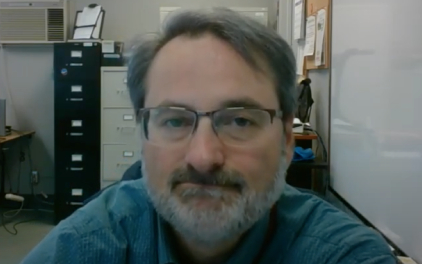“I’m originally from Buffalo, New York, and I moved out west in 2004 for a better quality of life. My education started out in chemistry but chemistry was not my forté, so I chose to change my major to computer science and that’s been my career for the last 34 years. Not too long ago, I decided to go into education, teaching IT. I’m now working at a federal programme called Job Corps which trains the workforce, for applicants aged 16 to 24. We have about 125 locations in the United States. It’s really exciting because students get hands-on training. Now that we’re in the time of covid-19, we have distance learning so we’re working from home, trying to help students. I will say that my career in IT wasn’t straightforward. I’ve worked for about 20 employers, compared with my dad who worked for one employer his whole career.”
How did you learn about Alison?
I got my degree in 1986 and, as I went along in my career, I realised my skills were getting dated and I decided to return to college after 20 years. After that programme, I felt like there were some things missing, that there were some components that the college really didn’t touch on. And so I was looking for other ways to train. I’m always looking for other forms of knowledge to tap. I was trying to find something that looked legitimate. At the time Alison was starting out and right away I discovered a curriculum for Business Administration. I wanted to see how this compared to my college experience and I was quite pleased with the components and what it covered, entrepreneurship in particular.
What’s your favourite way to relax from studying?
I like working with my hands so I’m often out in the yard digging. We live near some freshwater lakes and, right now, I’m refurbishing a small rowboat.
Where are you working/what are you studying now?
At Job Corps, I teach office administration, which is pretty encompassing, from having to learn the applications for Microsoft Office Suite to showing students various equipment that is used in the office. One of the things they ought to know is dealing with money. We’ve encountered a free quick books curriculum that we use for teaching how to make bank transactions and how to write a cheque and things of that nature.
How has Alison affected your career?
So the thing that I recall in the business administration programme is that, if you’re an entrepreneur, you should have a continuance of business plan, in case things go haywire like they are now. I was living in New York at the time of 9/11 and our data centre was cut off from the rest of the world. So suddenly you have to figure out what to do and you don’t know how long it’s going to last. That course on Alison took you through the many steps and phases of what you should be thinking about to develop that plan – to test it and to be ready to execute it when the time comes. That was a tough module because it really made you think.
What would you say to someone if they asked you about Alison? Would you recommend it and why?
First of all, I would say that it’s legitimate. Somebody didn’t form this just as a way to make money. When you complete the programme of study and you earn a credential and can receive a document that’s official. And it expresses to a potential employer that you’ve paid the dues of learning something that took effort. There’s a lot to discover at Alison. When I first encountered it I thought “oh there’s just gonna be a little bit on here” but the range of topics covered was very deep and wide. And they’re not all just digital in nature. I teach with other instructors who teach Certified Medical Assistants and that is typically tough to teach in a distance learning mode. But I saw when I was on Alison that there was a lot related to nursing and lifecare. It’s very useful stuff.





